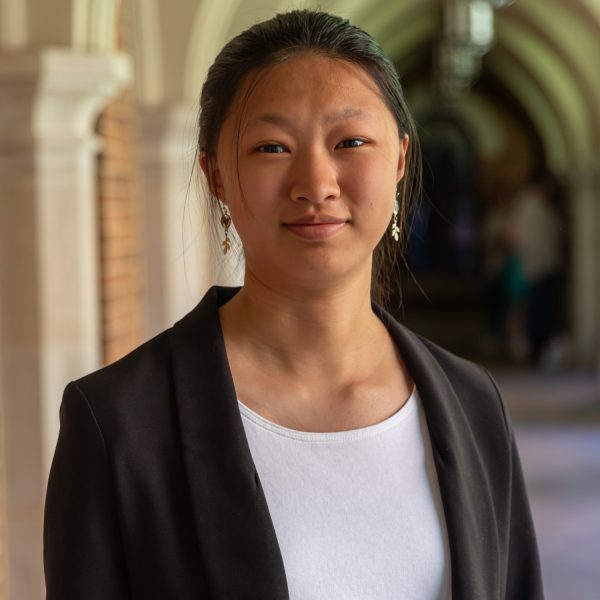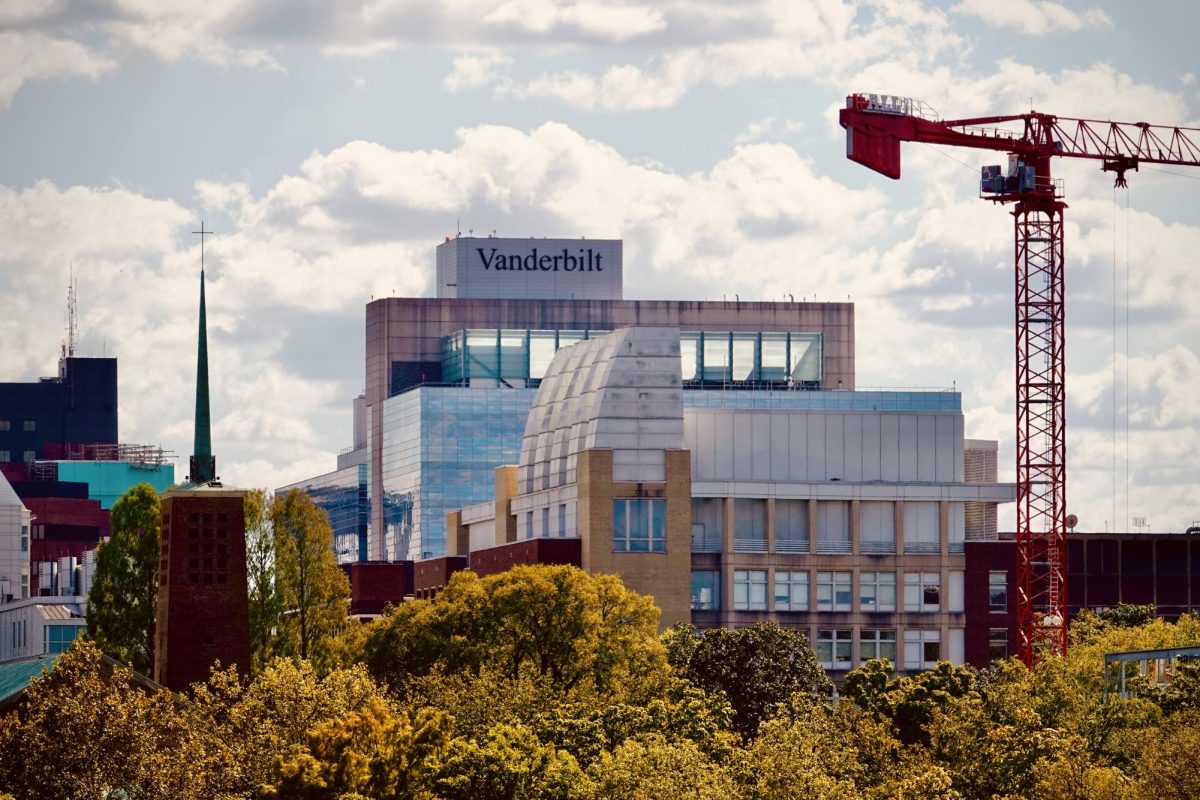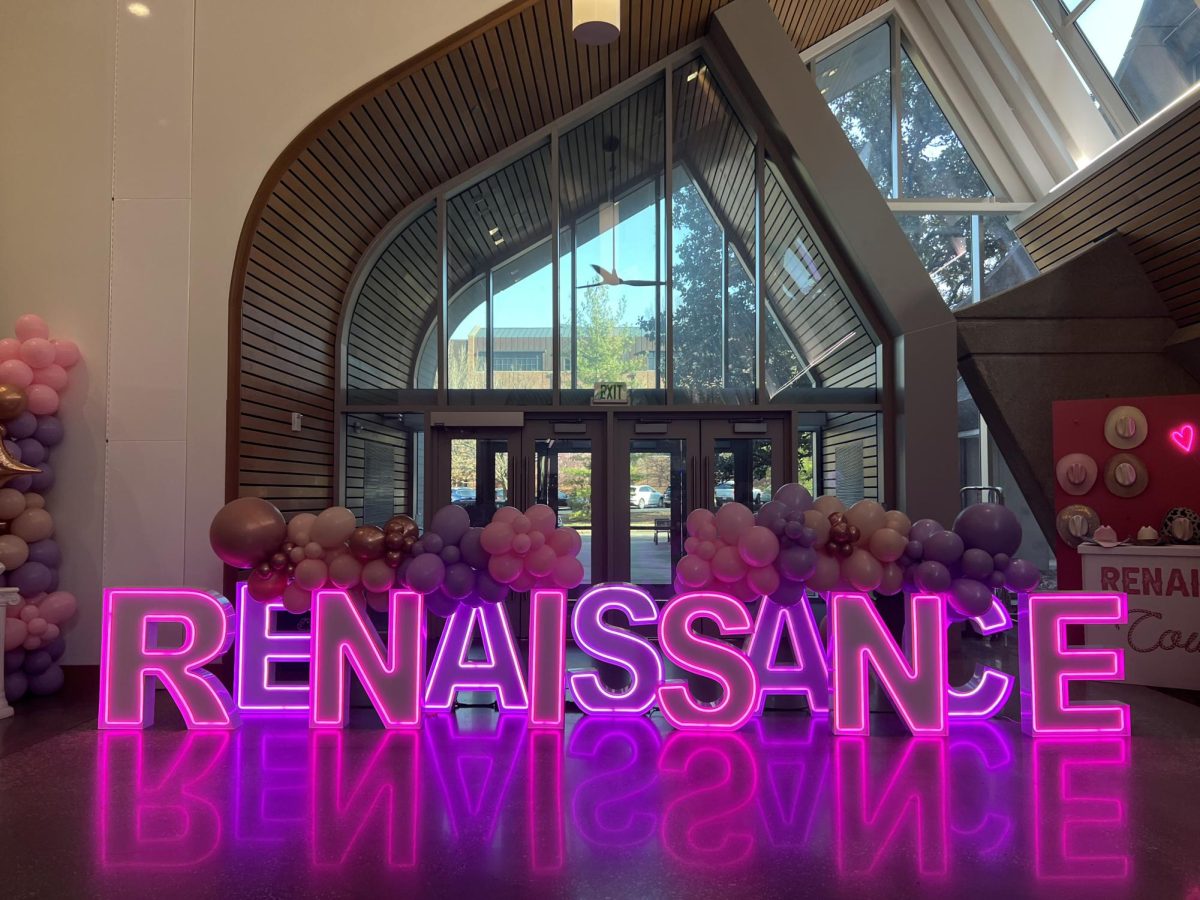The Wond’ry, Vanderbilt’s Center for Innovation, will move into the School of Engineering in the 2025-26 school year. As a result of this move, 10 staff members lost their positions.
The Wond’ry opened its doors in 2016 with the goal of becoming a cross-disciplinary home for innovation. Over the past nine years, the Wond’ry has offered makerspaces with 3D printing, laser cutting and electrical tools, a fiber arts lab for fabrics and virtual reality and advanced technology labs. In addition, it offers collaborative work spaces, mentorship programs, fellowships, student employment and other programs to drive ideation and creative thinking among students.
Wond’ry changes
The Wond’ry used to exist as a standalone entity not associated with any of Vanderbilt’s 11 schools. Executive Director of the Wond’ry, David Owens, reported to Vice Provost for Research Padma Raghavan. Now, Owens will report to the Dean of Engineering.
Within the Wond’ry’s original framework, it had four streams: innovation and design strategy, making and design, entrepreneurship and social innovation. Under the reorganization, entrepreneurship will now primarily be housed in the Owen Graduate School of Management, and social innovation will be housed in Peabody College’s Map the System curriculum and the Vanderbilt Center for Sustainability, Energy and Climate in the College of Arts and Science, among other places.
The Wond’ry plans to focus on innovation, invention and creation of new ideas. Owens said when students come to the Wond’ry with an idea, it will help them flesh out that idea thoroughly. Then, if that idea could become a business, students can utilize the Owen Graduate School of Management entrepreneurship resources.
“We are focusing in on the ideation part, because the entrepreneurship part, supporting ventures that are doing fundraising and all the later-stage activities requires a lot of resources and support,” Owens said. “So, we will now be able to redeploy our resources and staff time and energy towards the early part of the process, helping innovators to come up with new ideas and to vet them.”
Owens clarified that the decision to move the Wond’ry’s was announced before national research funding cuts occured. Much of the Wond’ry is funded through the I-Corps grant, which comes from the National Science Foundation and prepares scientists and engineers to extend their focus beyond the laboratory to increase the economic and societal impact of their work. This grant provides the Wond’ry $15 million over five years and was not impacted by funding cuts.
The Wond’ry also plans to introduce course offerings and build out its curricular programming. Everything before was extracurricular. Owens said that classes may have a WON course registration tag in YES and that there is potential for the creation of a master’s program, but that these ideas have not been entirely fleshed out yet. In addition, Owens described how the School of Engineering does not currently have a formal design thinking curriculum outside of senior design in a specific discipline, such as mechanical engineering or chemical engineering. He said he hopes this transition will fill that gap.
“It’s hard to create an all-campus resource at any university in a way that is sustainable because a lot of the resources traditionally come from offering degree programs, classes and from donations,” Owens said. “A lot of that is organized around the schools.”
According to Owens, the majority of the Wond’ry’s projects and programming will continue in some form. The annual social innovation and entrepreneurship conferences will remain the same, as they were primarily housed in the Owen Graduate School of Management to begin with. In addition, nothing about the Wond’ry’s access is changing — all students will be able to utilize its services, even if they are not engineering students.
“When Vanderbilt created the Wond’ry, one of the fundamental understandings was that everyone should be able to come here. That will not change,” Owens said. “We have the university’s continuing commitment about that since it is critical to the success of so many of the other innovation efforts on campus as well.”
Layoffs
A side effect of the Wond’ry’s restructuring is that 10 staff members from the Wond’ry’s directors’ office, social innovation and entrepreneurship teams were laid off. Their last day was May 2, 2025. Owens said this reduction in force came partially due to redundancies in the workforce with the move into the School of Engineering. For example, the Wond’ry can utilize the school of engineering’s special projects team and social media team, so they do not need to keep their own.
“We were doing things that made a lot of sense for who we were, but not for what we might be in 10 years,” Owens said. “All transitions are hard. It hurts in the short term, like if you break your arm, they set it, and that hurts. But in the long term, you’re better off. While you grieve for what you had and the people you got to work with, you also understand the need to move forward and make things better.”
Per Owens, those 100% funded by the I-Corps grant retained their positions, as that grant has not been affected. In addition, staff for makerspace and innovation and design strategy remain, along with staff to ensure functioning of the Wond’ry building, such as the front desk. Those who were let go will receive automatic interviews for other Vanderbilt positions for which they are qualified, should they elect to apply.
Destanē Garrett, former Program Coordinator for Biomedical Innovation, a role out of the entrepreneurship practice area, was one of the staff members laid off. She served in her role for almost three years. During her time at the Wond’ry, Garrett spearheaded the biotechnician workforce development program and started creating a needs-finding workshop. She said her programs will be pushed back and taken over by other staff members.
“It does kind of suck to not see what I was working on for the majority of the fall semester into the spring semester come to life and see how it’s implemented out further,” Garrett said. “I mean things just continue with value.”
Garrett described the news of her layoff as “surprising.” She expressed that in Fall 2024 when an annual review was being conducted, there was no indication that she may lose her job. When she and her colleagues were called into what was labeled as a “strategy session” in March 2025, she didn’t know what to expect. She thought that because they were meeting as a group, she may not lose her position.
“It was labeled as a ‘strategy session,’ but there wasn’t really anything strategic about it. It was more like ‘reduction in forces is how the Wond’ry will be moving forward, and it will not contain you and everybody else who is in the meeting with you,’” Garrett said. “Finding out in a group that you were being laid off together sucked. I feel like they could have handled that a lot better because most companies will pull you aside individually.”
Garrett has not utilized Vanderbilt’s priority interview system, as she elected to look for a new position externally. She described her last few months at the Wond’ry as “a double-edged sword,” since she felt privileged to look for positions while still employed but sad to see the organization move on without her while she was still in it.
“One of the things that we had asked was: what about our students? What are we supposed to tell them? And what was communicated to us was that students are not stakeholders,” Garrett said. “As we know, this is not true within all of the things that we do at the Wond’ry. That was also very disappointing to hear from Vanderbilt in our reduction in force strategy meeting that it was put on us to communicate what was happening to us to the students.”
Student reactions
Senior Sophia Arnold, Director of Vanderbilt Fashion Week, expressed her gratitude to the Wond’ry’s support of the organization over the past four years. She described it as the organization’s “creative home base.”
“The Wond’ry has been an essential partner in the growth and success of Vanderbilt Fashion Week over the past four years,” Arnold said. “From hosting the majority of our events to providing access to innovative resources like the Fab Lab, their generosity, support and belief in our mission have helped us bring student-led fashion, sustainability, and design to life.”
Sandy Wilderotter (B.E. ’25), echoed Arnold’s sentiments. Wilderotter shared that the Wond’ry mentors were one of the most impactful parts of her college experience.
“Since freshman year, the mentors have helped me turn ideas — big and small — into real projects, while teaching me along the way,” Wilderotter said. “I hope students across campus continue to feel welcomed and supported there, just like I have.”
Phillip Butcher (B.E. ’25), described how the Wond’ry gave him the opportunity to work as a MakerTech teaching assistant and summer intern, helping him work on meaningful projects and make connections that led to internships and full time opportunities.
“What makes the Wond’ry special is its inclusive spirit. Even though it’s filled with tools and tech that might seem intimidating — especially to non-engineers — the team works hard to create a welcoming environment for everyone,” Butcher said. “It’s crucial that this culture of openness continues, no matter where the Wond’ry is housed.”
Junior Tessa Mahoney, Tikkun Olam Makers president, shared how the Wond’ry served as a critical part of the organization. According to Mahoney, over 230 Makers from multiple schools came together in 2024 to design and deliver 82 custom solutions for individuals with disabilities in the Nashville community. Each of these projects was developed from start to finish in the Wond’ry, making use of both the materials and the mentorship provided by the staff and Makertechs.
“Touching on the fact that multiple employees were laid off recently, these staff members put so much time into helping us host large events [such as the Makeathon],” Mahoney said. “They will be deeply missed.”













